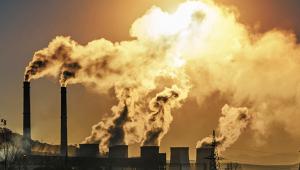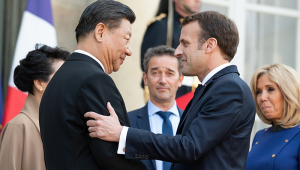Ahead of the Paris climate talks to be held next month the Carbon Pricing Panel –convened by the World Bank president Jim Yong Kim and IMF managing director Christine Lagarde – said that agreement on a carbon price would help steer the global economy towards a greener future.
Kim said the panel, which included leaders from Germany, Chile, France, Ethiopia, the Philippines and Mexico, as well as Californian governor Jerry Brown and Rio de Janeiro Mayor Eduardo Paes, represented an unprecedented degree of agreement.
Political leadership was emerging to “take green investment to scale at a speed commensurate with the climate challenge”, he said.
“There has never been a global movement to put a price on carbon at this level and with this degree of unison,” Kim stated. “It marks a turning point from the debate on the economic systems needed for low carbon growth to the implementation of policies and pricing mechanisms to deliver jobs, clean growth and prosperity.”
Globally, around 40 nations and 23 cities, states and regions have implemented or are putting a price on carbon. The number of implemented or scheduled carbon pricing instruments has nearly doubled since 2012.
The call comes as a new report by the OECD found that while progress has been made in combating greenhouse gas emissions, a “sharp acceleration” was needed if both advanced and emerging economies are to meet their mitigation goals.
Climate change mitigation: policies and progress called on countries to work faster towards reducing climate change and to move from pledges to action.
The report examined 44 countries which together account for over 80% of emissions. It found that the US has overseen an average annual reduction of 1.6% in emissions from 2005 to 2012. However the report found the country would have to cut its emissions by 2.3-2.8% per year to meet its own targets for reductions post-2020.
Likewise the European Union would need to cut emissions by 2.8% per year, compared to 1.8% from 2005 to 2012.
In emerging economies, the report found that aggregate emissions have significantly increased since the 1990s.
OECD environment director Simon Upton said the “momentum behind climate action is growing” and recognised countries have taken active steps to price carbon and regulate emissions.
However, countries are running out of time to make the policy adjustments needed to meet their targets and limit the rise in global temperatures to 2 degrees.
“Governments need to construct a policy pathway that will lead to zero net carbon emissions by the end of the century,” he added.













